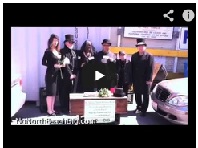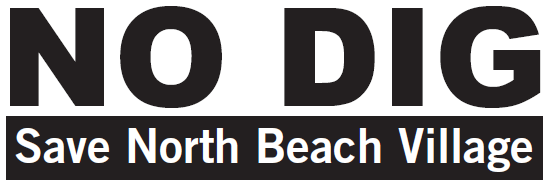Subway Project Drills Down on Costs
Audit Finds Some Unallowable Expenses, Fueling Critics' Concerns, but San Francisco MTA Says It Is on Budget and on Track
By ZUSHA ELINSON Wall Street Journal, May 15, 2013
San Francisco's Central Subway project has faced local grumbling for years over its ballooning price tag. Critics are now getting some fresh fodder after a new audit found contractors were passing on some unallowable costs, including for celebratory cakes.
The disallowed expenses identified by the audit from earlier this month as well as a previous one totaled $1.2 million—a fraction of the $1.6 billion total price tag for the 1.7-mile subway project, which will run from South of Market to Chinatown and is slated to open in 2019. Nearly $1 billion of the cost is being paid for with federal funds.
However for some opponents of the subway, this is the icing on a series of recent incidents stoking their concerns that the project's cost will continue to rise, as construction is only in its early stages.
Gerald Cauthen, a transportation consultant who is part of a group that fought the Central Subway, says recent events augur poorly for the final cost of the subway, which he has frequently characterized as a boondoggle. "Heavy construction has barely started, we have six years to go," he says. "I think they're going to go in the red. The only question is how much in the red."
Paul Rose, a spokesman for the San Francisco San Francisco Municipal Transportation Agency, which is overseeing subway construction, says the project is on budget and on schedule. He acknowledges the contingency reserve fund for the project has dropped to $70 million from $200 million, largely because of a higher-than-expected bid to build stations and tracks.
Mr. Rose says the MTA commissioned the audits "so the public's money is properly spent," and that the auditors are doing exactly what the agency wants. Depending on the audit findings, contractors will make reimbursements or adjust their rates, he says.
City auditors said in their latest report that TBD Consultants Inc., a construction-management firm hired as a subcontractor to the Central Subway project, included $68 for two birthday cakes in its billing rate. The audit also found that TBD Consultants included a $70 parking ticket, $480 for golf and $900 for the company soccer team. None of these charges are allowed under federal rules, the audit says.
Niall Durkin, a principal at TBD Consultants, says "in general we agree with the audit findings," but adds that "some items removed by the auditors would normally be allowed, however we did not have the correct backup material on file and we accept this is our responsibility."
The earlier audit, in February, found that B&C Transit, a firm hired for a design contract, included a $645 three-tiered wedding cake for 90 guests in its overhead rate. Auditors also flagged $3,000 in campaign contributions and $44,230 in charitable donations, including $15,444 for the Chinese Hospital 16th Annual Golf Tournament. The firm was ordered by auditors and the San Francisco MTA to lower the rate.
B&C executives didn't return phone calls seeking comment, but the company disputed some of the findings in an official response to the audit, though not the cakes and the political and charitable donations.
The audits are just the latest hiccup for the Central Subway, which has been the subject of heated debate for years. Proponents have said it would be a boon for residents of congested Chinatown while opponents say the subway is poorly planned and the money would be better spent on more-cost-efficient transportation projects.
Cost remains one of the biggest issues. The $1.6 billion price tag is far above a $647 million estimate from 2001. Last month, the low bid to build the stations and tracks came in $90 million to $120 million higher than the MTA's estimate. At the same time, concerns emerged that a complicated plan to pull tunnel-boring machines out of the ground in North Beach could cost more than anticipated.
It isn't unusual for large public works projects to go over budget. An oft-cited 2003 study by Oxford University professor Bent Flyvbjerg found that on average, rail projects went over budget by 45%, with bridge and tunnels over by 34%. And a 2009 Federal Transit Administration risk assessment calculated that the Central Subway had a 30% chance of coming in within the $1.6 billion budget.
Since that time the San Francisco MTA has put in place a risk-management plan that is "designed to minimize project risks and deliver this program on budget," says Mr. Rose of the MTA.
City auditors are paying close attention to the project. Tonia Lediju, director of city audits, says companies working on the project don't always know the rules of government contracting, which prohibit certain expenses.
"They do their business as normal, they buy cakes," says Ms. Lediju. "As a governmental entity, we don't pay for things like that."
Write to Zusha Elinson at zusha.elinson@wsj.com


